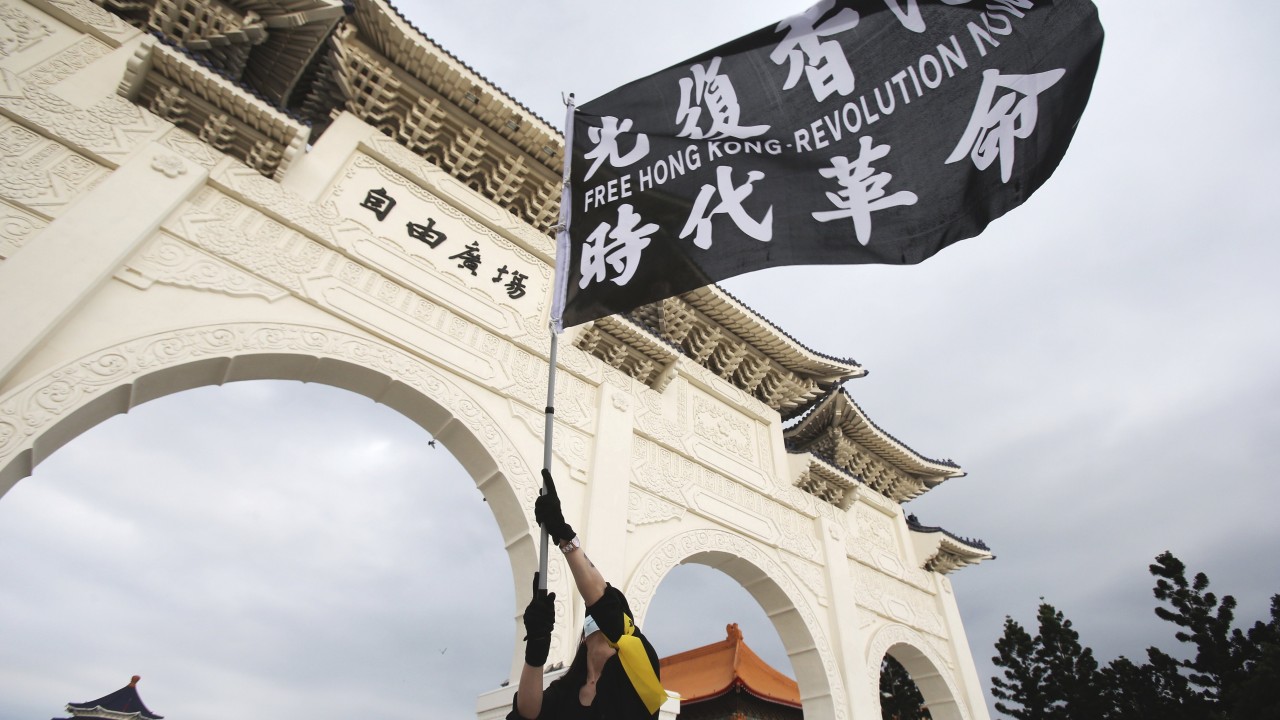
US sends surveillance aircraft to watch Chinese coastline as Taiwan starts major military exercise
- The E-8C was spotted near the Guangdong coast on Monday as the Taiwanese military started its annual training exercise
- Latest flight comes as relations between Washington and Beijing continue to deteriorate
A US surveillance aircraft passed close to China’s southern province of Guangdong in a rare operation believed to be designed to monitor any military activity along the coast.
The E-8C was spotted around 110km (68 miles) from the coast, according to an image published on Twitter by the South China Sea Strategic Situation Probing Initiative, a Peking University think tank.
The flight coincided with Taiwan’s largest annual military exercise, the Han Kuang, which started on Monday.
For the first time, the exercise featured Taiwan’s newly formed combined arms battalions and also involved cooperative special forces operations, torpedo target practice and live-fire drills involving reserve units.

02:06
Taiwan announces humanitarian aid plan for people fleeing Hong Kong
Before being spotted near Guangdong, the E-8C had been at Kadena airbase in Japan and was spotted flying over Tokyo early on Monday, according to images posted on Twitter by the No Callsign account.
The reconnaissance planes have been frequently spotted near the Korean peninsula in recent months as tensions escalated.
Monday’s flight came as relations between China and the US continue to deteriorate. Earlier this year Washington stepped up its exchanges with Taiwan – which China sees as a breakaway province that must eventually be reunited with the mainland – with the passage of the Taiwan Allies International Protection and Enhancement Initiative Act.
Taiwan’s military tests defences against mainland China invasion in annual war games
The Chinese military has also responded to recent US military activities by warning that they will only harm America’s allies.
The official WeChat account of the Southern Theatre Command said that although the US was trying to reassure its allies in the Indo-Pacific region, it might try to exploit these alliances.
Last week, a US RC-135 reconnaissance aircraft and two EP-3E reconnaissance planes approached the Chinese coast for three days in a row.
Earlier this month, the US conducted a large air defence drill in the South China Sea, involving two aircraft carrier groups led by the USS Nimitz and USS Ronald Reagan, “in support of a free and open Indo-Pacific”.
Beijing has said the situation in the South China Sea is stable, but claims the US aims to stir up trouble between China and Southeast Asian nations.
Over the weekend, David Helvey, acting assistant secretary of defence for Indo-Pacific security affairs, said the US needed long-term strategies and “like-minded partners” to compete with Beijing in a race to lead the international order.
He said the Chinese Communist Party’s challenge to the international rules-based order would be a marathon, not a sprint.
The US should “remain focused on deterring aggression” by maintaining a ready and capable force, developing innovative operational concepts, and investing more to solidify its technological advantage, including in space and cyberspace.
China’s July talks with Vatican will have Taiwan looming in background
Song Zhongping, a Hong Kong-based military commentator, said the latest flight followed multiple People’s Liberation Army exercises in the region.
“The US has to know what the PLA is going to do, such as whether the PLA is preparing to solve the Taiwan issue by force any time soon,” Song said.
Collin Koh, a research fellow from the S Rajaratnam School of International Studies at Singapore’s Nanyang Technological University, said that the E-8C plane might have been looking for suspicious activity.
“It’s especially likely to check out any unusual PLA forces concentration along the coast that may be telltale signs of major military operations or exercises,” Koh said.

